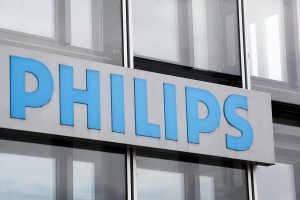por
John R. Fischer, Senior Reporter | June 19, 2020

Philips accused Summit Imaging back in October of "hacking" into its ultrasound system and stealing trade secrets. Summit Imaging denies the allegations and has filed a counterclaim
Summit Imaging, a medical device repair company, has filed a request for a federal judge to dismiss claims of hacking and stealing trade secrets made against it and its CEO Larry Nguyen by healthcare tech giant Philips.
The Seattle-based company denies the accusations that were made in a lawsuit filed in October, in which Philips alleged that Summit built software that could hack into its ultrasound systems and other devices. It asserts that the Washington state organization’s intent was to bypass strict access controls that regulate how hardware can be used. Summit, in return, has filed counterclaims against Philips, accusing it of violating antitrust laws and of copyright misuse.
“These claims are based on Philips' efforts to prevent healthcare providers and independent service organizations from being able to service Philips' ultrasound equipment,” Per Marc Levy of Seed IP Law Group and Summit Imaging’s attorney, told HCB News. “Summit Imaging intends to vigorously defend itself against Philips' claims and prosecute its counterclaims against Philips for engaging in anti-competitive behavior.”




Ad Statistics
Times Displayed: 17374
Times Visited: 305 Stay up to date with the latest training to fix, troubleshoot, and maintain your critical care devices. GE HealthCare offers multiple training formats to empower teams and expand knowledge, saving you time and money
The suit alleges that Summit views its solution as a legal way to get around restrictions that companies like Philips integrate within their devices, and that it used this viewpoint to help sell the software to hospitals, healthcare networks, clinics, manufacturers and others. It states that the modifications made by Summit give illegal access to Philips proprietary software and trade secrets, and enable Summit and its customers to “force compatibility and interoperability” between Philips medical imaging devices and related hardware devices.
Philips says that Summit requires permission if it is going to “tamper” with the proprietary software of its systems, and that its actions misappropriate trade secrets, create false advertising, modify copyrighted materials, and constitute copyright infringement, among other claims. It is seeking the return of trade secrets, financial damages and an order barring Summit from using tools that allegedly go around its hardware controls.
“We can confirm that Philips filed a suit in the U.S. against Summit Imaging Inc. and Lawrence R. Nguyen for circumventing technical measures, modifying copyright management information, misappropriation of trade secrets, false advertising and unfair competition,” Mario Fante, senior press officer at Philips Global Press Office, told HCB News. “Regarding the counter claims, we believe none are of merit. At Philips we respect fair competition and intellectual property rights of others, and believe that other companies should abide by the same standards.”
The court originally dismissed three of Philips’ claims on grounds that it did not state a claim upon which relief may be granted. It then tried to re-plead those three claims, according to Summit.
The accusations issued by both fall in line with the ongoing debate over the “Right to Repair”, in which third-party providers and independent service organizations have accused OEMs like Philips of not sharing specific information needed to make certain repairs in order to provide its own services. In return, OEMs have argued that the quality of repairs made by ISOs and third-party providers may not be as efficient as their own and therefore, they cannot be trusted with such information. More than 300 healthcare professionals signed a letter last month asking state lawmakers to remove barriers to repairing medical equipment,
according to GeekWire.
“Keeping equipment working under the stress of the COVID-19 pandemic is a matter of life and death,” said Nathan Proctor, the Right to Repair campaign director for the U.S. Public Interest Research Group, in a statement. “This is no time to squeeze hospitals into paying extra for proprietary repairs.”
Nguyen told HCB News that Summit has merely developed resources to help customers service their own medical imaging equipment, and that its patented technology makes providers aware of the information and tools they need to service equipment.
“Properly leveraging technology to enable healthcare providers to deliver their medical services in a financially viable form should be the goal of every service provider in this industry,” he said. “Disturbing companies like Summit Imaging is anti-competitive and adverse to the needs of healthcare providers and the patients they seek to serve.”
U.S. District Court Judge James Robart in Seattle has given Philips until July 8 to respond to Summit’s counterclaims.


Wayne Webster
Philips is caught in a circular argument
July 01, 2020 11:09
Philips and all the OEM's have a single narrative, ISO's aren't as good as repairing equipment as we are. The reason is evident...they, the OEM's withhold the very material and training as well as parts that would level the playing field with the ISO's. They, the OEM's claim they do this for "Patient Safety". If this was the case they, the OEM's, would release the information and train others and therefore eliminate the "Patient Safety" issue they claim to care so much about.
The OEM's want to control the marketplace and eliminate the very organizations, the ISO's, they hire to provide repair services for their customers. This is restraint of trade plain and simple and Philips will have a lot of explaining to do in court to prove otherwise.
to rate and post a comment